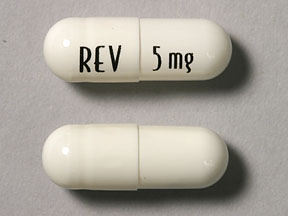
Recently Diagnosed or Relapsed? Stop Looking For a Miracle Cure, and Use Evidence-Based Therapies To Enhance Your Treatment and Prolong Your Remission
Multiple Myeloma an incurable disease, but I have spent the last 25 years in remission using a blend of conventional oncology and evidence-based nutrition, supplementation, and lifestyle therapies from peer-reviewed studies that your oncologist probably hasn't told you about.
Click the orange button to the right to learn more about what you can start doing today.
- You are here:
- Home »
- Blog »
- Multiple Myeloma »
- “Serious Adverse Events” – Low-dose Revlimid Maintenance
“Serious Adverse Events” – Low-dose Revlimid Maintenance

Serious adverse events were reported in 494 (45%) of 1097 patients receiving lenalidomide compared with 150 (17%) of 874 patients on observation.
“Hi David- I was diagnosed with mm in sept. 2018 stage 2, I went into remission within a few months. I did stem cell transplant First of March 2019. I have been on different maintenance treatments and still in remission it seems from the blood work. I do re-staging in November to make sure I’m still in remission.
I was told they like to do 3 years of maintenance but I’m seriously thinking of not doing it that long.
- undergo low-dose revlimid maintenance therapy for three years- the SOC is 10mg a day, 21 days on, 7 days off
- undergo low-dose revlimid maintenance therapy for three years- but half the dose- do 5 mg a day, not 10mg.
- Undergo antioxidants such as curcumin, resveratrol, omega-3 fatty acids with 5 mg revlimid- see the supplements guide below.
- To Learn More About Short-term Side Effects- click now
- To Learn More about chemotherapy-induced diarrhea- click now
- To learn more about LDRM- click now
- To learn more about possible side effects of chemo- click now
- MM Survivor
- MM Cancer Coach
- Director PeopleBeatingCancer
Recommended Reading
- Low-Dose Revlimid Maintenance Post Autologous Stem Cell Transplant- Pros/Cons
- Multiple Myeloma Therapy- Bisphosponate Risks- Zometa, Aredia, etc.
- Multiple Myeloma Side Effects- Low Neutrophils aka Leukopenia- Help!
“Another limitation of the trial is the lack of prospectively collected quality-of-life data. However, given that the time until first disease progression is often when patients with myeloma have a better quality of life, the improvement in progression-free survival and progression-free survival 2 seen in our study suggests the use of maintenance lenalidomide would be of benefit in the transplantation-ineligible setting…
The most common grade 3 or 4 adverse events for patients taking lenalidomide were haematological, including
neutropenia (362 [33%] patients),
thrombocytopenia (72 [7%] patients), and
anaemia (42 [4%] patients).
Serious adverse events were reported in 494 (45%) of 1097 patients receiving lenalidomide compared with 150 (17%) of 874 patients on observation.
The most common serious adverse events were infections in both the lenalidomide group and the observation group. 460 deaths occurred during maintenance treatment, 234 (21%) in the lenalidomide group and 226 (27%) in the observation group, and no deaths in the lenalidomide group were deemed treatment related…“
Revlimid Side Effects by Likelihood and Severity
COMMON side effects
If experienced, these tend to have a Severe expression
Anemia
Decreased Blood Platelets
Low Levels Of A Type Of White Blood Cell Called Neutrophils
Low Levels Of White Blood Cells
Trouble Breathing
If experienced, these tend to have a Less Severe expression
A Common Cold
A Skin Rash
Backache
Constipation
Cough
Cramps
Diarrhea
Dizziness
Dry Skin
Fever
Fluid Retention In The Legs, Feet, Arms Or Hands
Generalized Weakness
Headache
Intense Abdominal Pain
Itching
Joint Pain
Low Energy
Muscle Tremors
Nausea
Nosebleed
Numbness
Throat Irritation
Weight Loss
INFREQUENT side effects
If experienced, these tend to have a Severe expression
A Decreased Number Of Lymphocytes In The Blood
A Painful Condition That Affects The Nerves In The Legs And Arms Called Peripheral Neuropathy
An Infection
Atrial Fibrillation
Blood Clot In A Deep Vein Of The Extremities
Bronchitis
Chest Pain
Dehydration
Low Amount Of Calcium In The Blood
Low Amount Of Phosphate In The Blood
Low Amount Of Potassium In The Blood
Obstruction Of A Blood Vessel By A Blood Clot
Pneumonia
Squamous Cell Carcinoma
Visible Water Retention
If experienced, these tend to have a Less Severe expression
A Feeling Of Pins And Needles On Skin
A Stuffy And Runny Nose
Basal Cell Carcinoma Of The Skin
Blurred Vision
Bruising
Bruising Under The Skin
Cellulitis
Chest Pains Unrelated To Heart Problems
Chills
Decreased Appetite
Depression
Difficulty Sleeping
Dry Mouth
Erythema Or Skin Redness
Excessive Sweating
High Blood Sugar
Inflammation Of The Tissue Lining The Sinuses
Loose Stools
Muscle Pain
Muscle Weakness
Pain In The Arms Or Legs
Taste Impairment
Urinary Tract Infection
Vomiting
RARE side effects
If experienced, these tend to have a Severe expression
A Blood Clot
A Clot In The Lung
A Condition With Low Thyroid Hormone Levels
A Condition With Muscle Tissue Breakdown Called Rhabdomyolysis
A Heart Attack
A High Alanine Transaminase Level
A Localized Weakening And Ballooning In An Artery Wall Called An Arterial Aneurysm
A Significant Type Of Allergic Reaction Called Anaphylaxis
A Skin Disorder With Blistering And Peeling Skin Called Stevens-Johnson Syndrome
A Skin Disorder With Blistering And Peeling Skin Called Toxic Epidermal Necrolysis
A Stroke
A Sudden Loss Of Vision
A Systemic Inflammatory Response Called Sepsis Due To An Infection With Bacteria
A Type Of Allergic Reaction Called Angioedema
A Type Of Blood Cancer Called B-Cell Acute Lymphoblastic Leukemia
A Type Of Blood Disorder With A Decrease In All Types Of Blood Cells Called Pancytopenia
A Type Of Cancer Of The Lymph Nodes Called Hodgkin’s Lymphoma
A Type Of Significant Allergic Skin Reaction Called DRESS Syndrome
A Type Of Stomach Irritation Called Gastritis
Abnormal Liver Function Tests
Abnormal Peeling Of Skin
Acute Cerebral Infarction
Acute Liver Failure
Acute Myeloid Leukemia, A Type Of Blood Cancer
An Inability To Completely Empty The Bladder
An Increase In Uric Acid Due To Cancer Chemotherapy
Atrial Flutter
Bacteria In The Blood
Bleeding
Bleeding Of The Stomach Or Intestines
Bloody Urine
Cerebral Ischemia, A Lack Of Blood Supply To The Brain
Decreased Kidney Function
Decreased Oxygen In The Tissues Or Blood
Delirium
Destruction Of Red Blood Cells By Body’s Own Antibodies
Diabetes
Diarrhea From An Infection With Clostridium Difficile Bacteria
Encephalitis
Fluid Accumulation In The Brain
Fluid In The Lungs
Heart Failure
High Blood Pressure
Increased Eosinophils In The Blood
Inflammation In The Lungs Due To An Allergic Reaction
Inflammation Of A Vein
Inflammation Of The Liver Called Hepatitis
Inflammation Of The Liver With Stoppage Of Bile Flow
Inflammation Of The Skin With Blisters
Kidney Failure
Low Amount Of Magnesium In The Blood
Low Blood Pressure
Lymphedema, Or Swelling Due To Blockage Of Lymph Nodes
Mental Problems From Taking The Drug
Mental Status Changes
Myelodysplastic Syndrome, A Bone Marrow Disorder
Orthostatic Hypotension, A Form Of Low Blood Pressure
Pancreatitis
Progressive Multifocal Leukoencephalopathy, A Type Of Brain Infection
Reactivation Of Hepatitis B Infection
Rejection Of A Transplanted Organ
Renal Tubular Necrosis, A Kidney Disorder
Shingles
Skin Rash With Sloughing
Supraventricular Tachycardia
Sweet’s Disease
Swollen Lymph Nodes
Thrombophlebitis, An Inflamed Vein Due To A Blood Clot
Vision Loss


